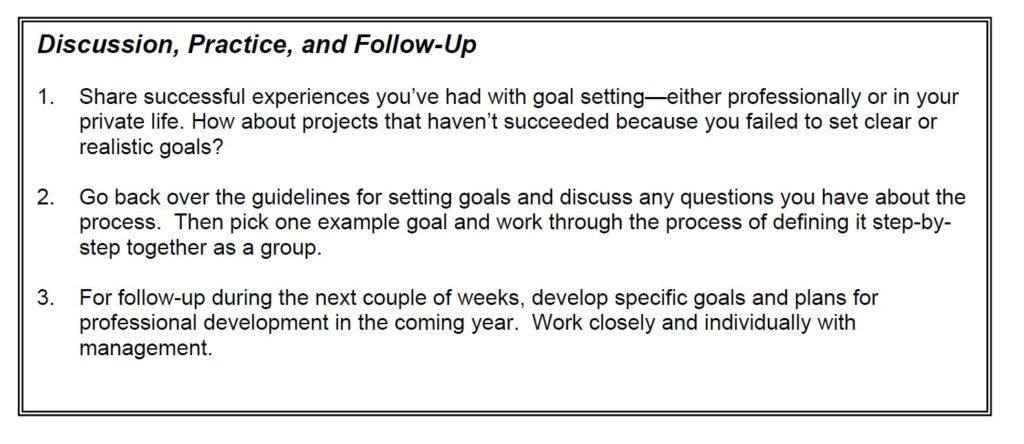Setting Professional Goals
Article provided for The Plumb Club by Kate Peterson, PC Performance Concepts

Retail selling is one of the most rewarding of all the activities in today’s jewelry industry.
It provides opportunities and incentives for growing in a multitude of ways. In fact, you could spend an entire career in sales and never run out of possibilities. However, it’s important to keep moving forward professionally. To do this you need to learn to set goals.
Setting goals allows you to choose where you want to go. It helps you stay motivated and make the most of your efforts. It also enables you to recognize your capabilities and enjoy your achievements.
A comprehensive approach to goal setting encompasses all the main areas of professional expertise—product knowledge, selling skills, and store operations. You might also add computers, fashion trends, or other topics that interest you.
Once you’ve identified your target areas, there are some proven strategies for defining goals effectively:
- Make your goals challenging but achievable. —If a goal is too low and too close to what you’re already doing, there’s little reason to push yourself and you may not see much benefit in reaching it. On the other hand, if a goal is unrealistically high, the chances of a discouraging failure are much greater.
- Begin with long-range goals, then work backward to set medium- and short-term goals. —It might be 1 year or 10 but think Big Picture first. After you have that clearly in focus, divide it into steps—monthly, weekly, daily—that add up to the final objective. If your long-range goal is increasing your monthly sales by $1,000, try aiming for $100 per month over 10 months. Interim goals allow you to make adjustments as you go along. They also create more opportunities for success.
- Put your goals in writing and be specific. —Whenever possible, translate a goal into numbers—dollars, percentages, and so forth. For example, “Make $30,000 in sales this December” is clearer than “Make more sales next holiday season.” If you can’t express a goal in numbers, state the conditions for meeting it: “earn my professional credentials.” Either way, find an objective criterion that signifies you accomplished what you set out to do.
- Identify needs and resources. —Decide what additional knowledge, skill, or experience you’ll need to reach the goal, and how you can best obtain it. This can help you clarify long-range goals and define interim steps. Remember that good options include learning on your own, instore training sessions, and formal programs offered by industry organizations.
- Identify potential obstacles. —These are the problems and concerns that may slow you down. Don’t try to fix them before you begin. (In fact, you usually can’t.) Just be aware, prepare, and know what to expect. That way you won’t be surprised or discouraged if they do pop up.
- Identify expected benefits. —This is the reward you anticipate for reaching a goal. It might be a raise, a new car, formal recognition, personal satisfaction, or something else. Whatever it is, it should provide enough mental, emotional, or material motivation to keep you moving.
- Establish a timeline. —Give yourself a date to start working on the goal, and also deadline for finishing. Otherwise, it’s easy to put things off and lose momentum.
- Get a witness. —Just like a formal contract, sign on the dotted line to emphasize your commitment. Then ask someone to witness your signature. It can be your manager, a coworker, or a family member. This creates external motivation and support for your goal-reaching efforts.
After you’ve defined a set of goals, prioritize them. Go down the list and decide whether each objective is high, medium, or low in its contribution to your overall effort. This helps you give the most energy to the most important goals.
Once you get going, review, reevaluate, update, and revise on a regular basis to make sure your goals reflect your current priorities. Try to learn from your failures. When you achieve a goal take time to enjoy the satisfaction and reward yourself appropriately.
Like other things, goal setting becomes more effective with practice. If you learn to set goals, you’ll acquire one of the most valuable skills of all—the ability to keep developing professionally.
